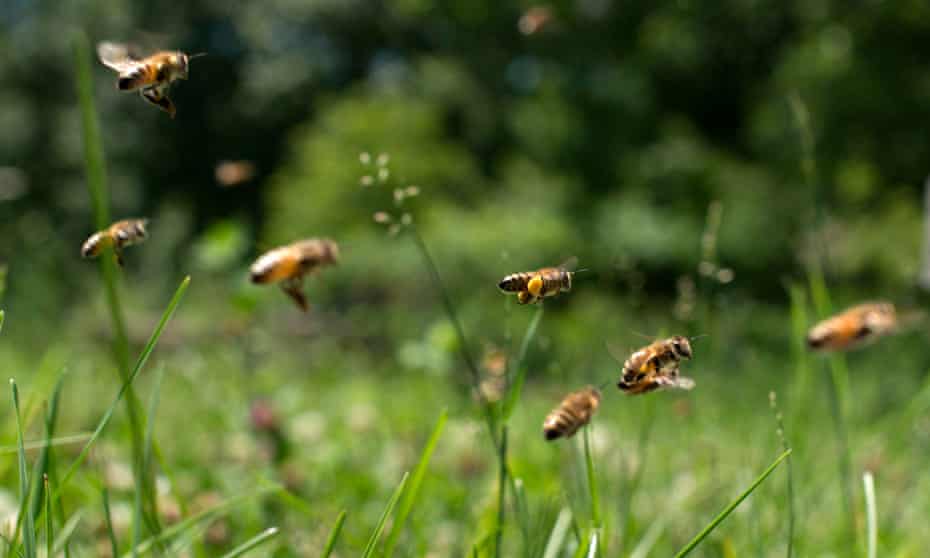Bee-harming pesticides exported from EU despite ban on outdoor use
Greenpeace says 3,900 tonnes of neonicotinoids were due to leave EU and UK in three months after ban

Thousands of tonnes of pesticides that seriously harm bees are being exported from the EU despite a ban on their outdoor use within the bloc.
Data obtained by Unearthed, the investigative arm of Greenpeace, and Swiss NGO Public Eye shows that 3,900 tonnes of banned neonicotinoid pesticides were destined to leave the EU and UK for low- and middle-income nations with weaker environmental regulations in the three months after the ban came into force.
The insecticides, which contain the active ingredients thiamethoxam, imidacloprid or clothianidin, were mostly destined for Brazil (which was due to receive almost half of the exports), Russia, Ukraine, Argentina, Iran, South Africa, Indonesia, Ghana, Mali and Singapore.
The EU ban came into force on 1 September 2020. Neonicotinoid pesticides have been described by the International Union for Conservation of Nature as “a worldwide threat to biodiversity, ecosystems and ecosystem services”, but some EU countries continue to use them under emergency authorisations.
Eight EU countries are likely to have exported banned neonicotinoid pesticides since the ban – Belgium, France, Germany, Spain, Greece, Austria, Denmark and Hungary – plus the UK.
The World Health Organization and the Food and Agriculture Organization welcomed the ban and said it was evidence of a growing consensus on the need to severely restrict the pesticides’ use owing to the “large-scale adverse effects on bees and other beneficial insects”.
Claire Nasike, of Greenpeace Africa, said: “This is the highest form of double standards, exhibited by these EU countries. They are prioritising profits at the expense of the people and the planet. It is time for low- and middle-income countries to pass laws that protect their people and environment from these toxic chemical imports.”
A European Commission health and food safety official said: “Neonicotinoids are particularly toxic for bees and contribute significantly to the decline in pollinator populations. We would not find it acceptable that the production of food for import into the EU leads to or poses a threat of serious adverse effects on pollinator populations.”
Most of the exports were notified by subsidiaries of Syngenta, the Swiss-headquartered, Chinese-owned pesticide multinational, and its German counterpart Bayer.
A Bayer spokesperson said neonicotinoids were an important tool for farmers as they helped to control pests and safeguard harvests. “The mere fact that a plant protection product is not authorised or banned in the EU says nothing about its safety,” they said.
A Syngenta spokesperson said: “We fully stand by the safety and effectiveness of thiamethoxam. The many emergency authorisations granted by various EU countries show that farmers need this technology to protect their crops.”
Neonics were set to be used in England this year under an emergency authorisation, despite a government pledge to keep the restrictions post-Brexit to protect “pollinator populations at risk … unless the evidence base changes”. But the plan was ditched after cold weather killed off virus-transmitting aphids.
A report from the Intergovernmental Science-Policy Platform on Biodiversity and Ecosystem Services said: “Recent research focusing on neonicotinoid insecticides shows evidence of lethal and sublethal effects on bees.”
A European Commission source said countries could decide whether they wanted to import certain pesticides. “A ban of exports from the EU may, however, not automatically lead third countries to stop using such pesticides if they may import them from elsewhere,” they said.